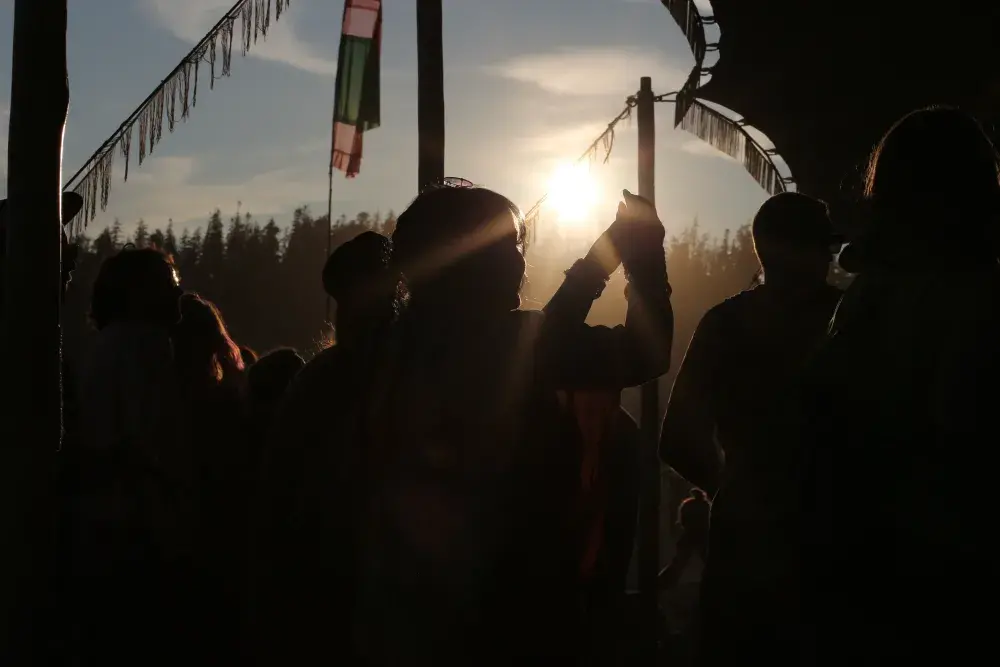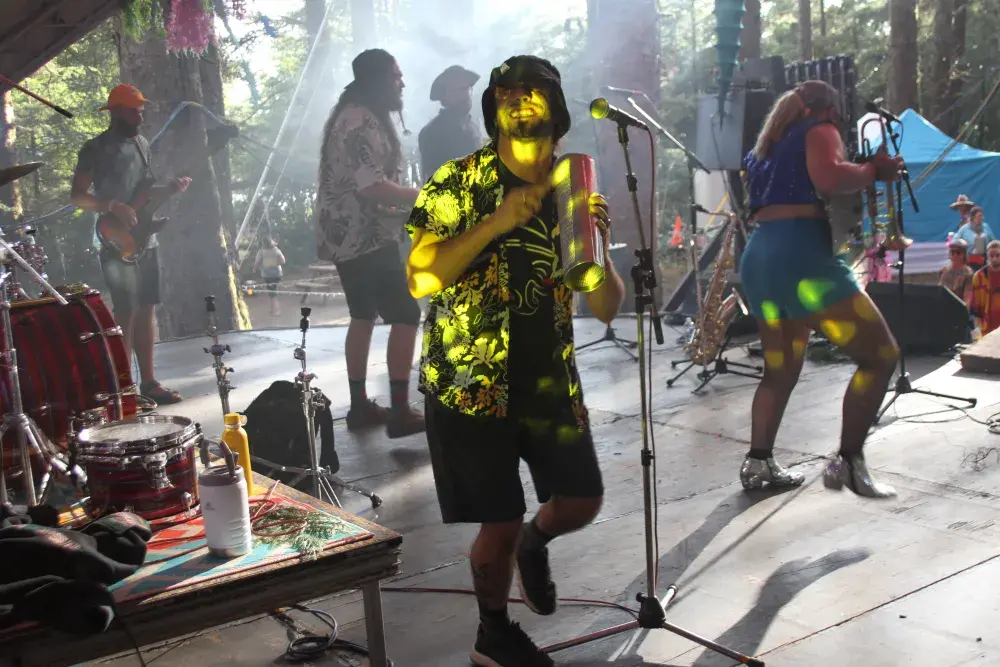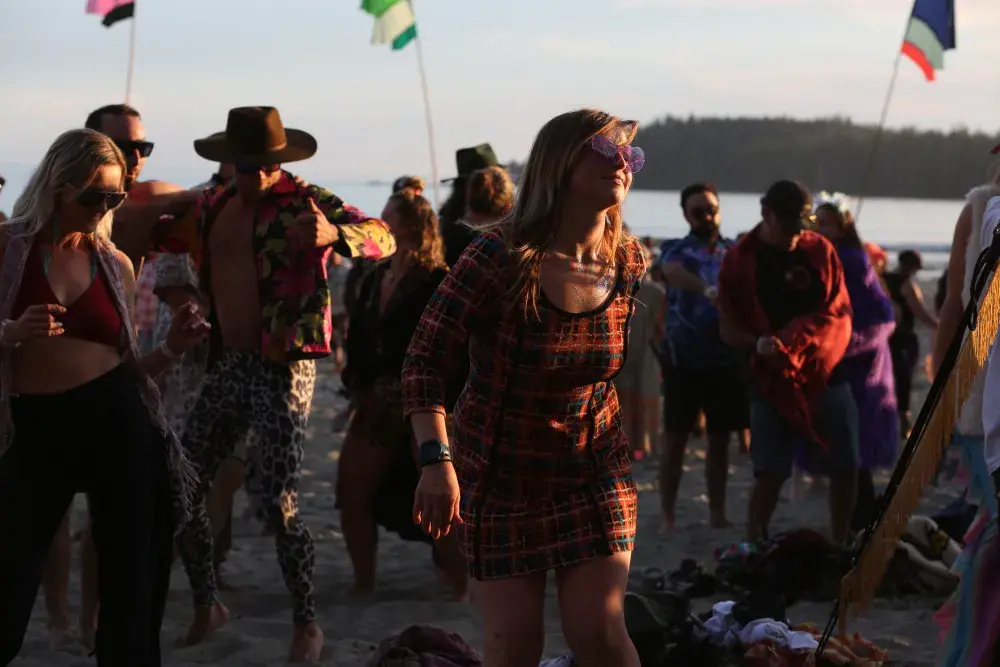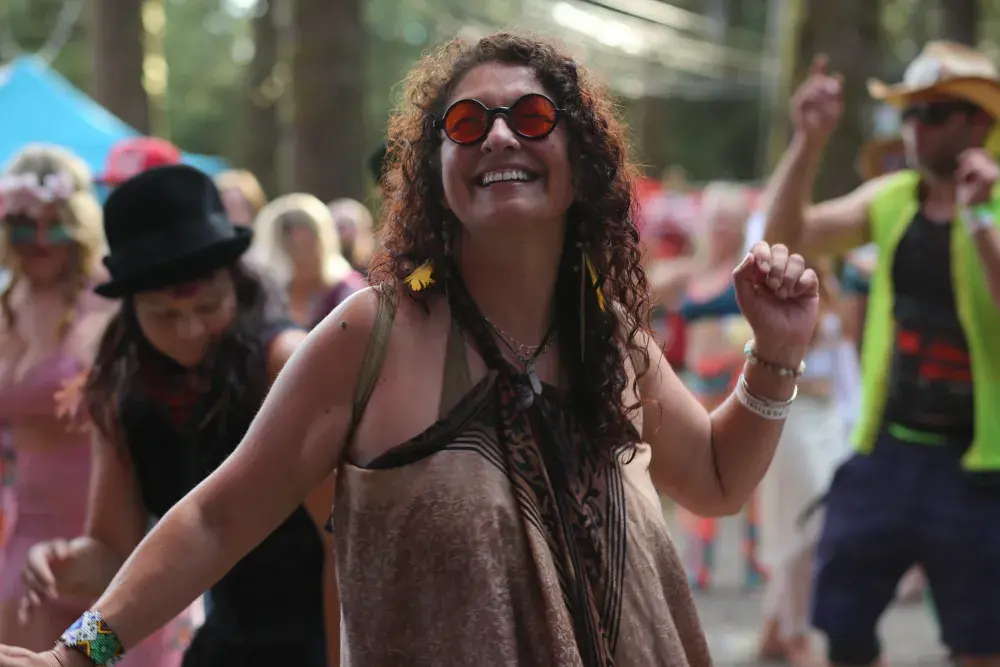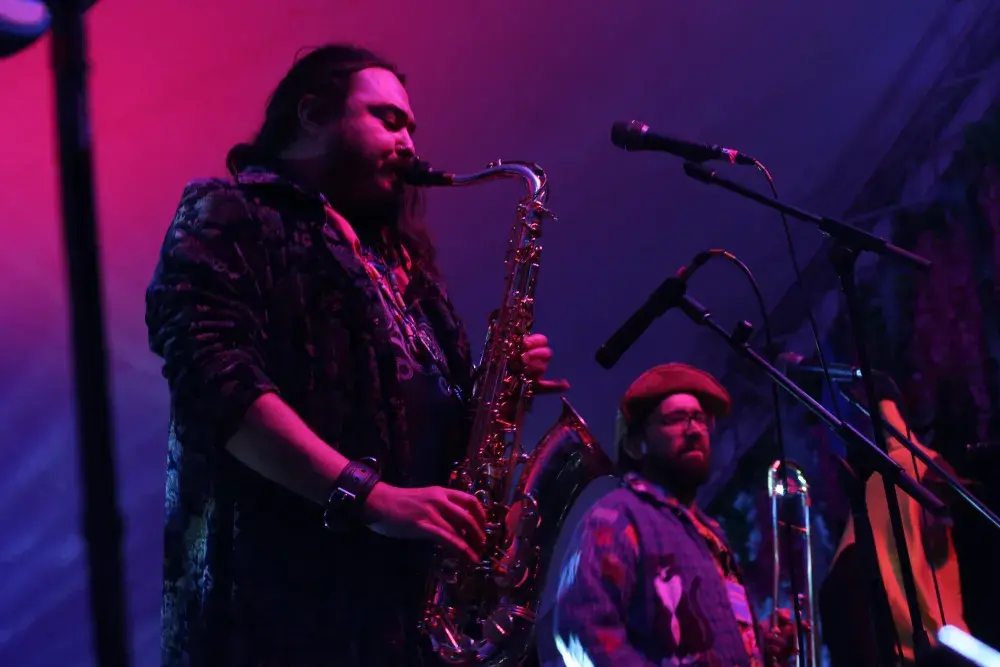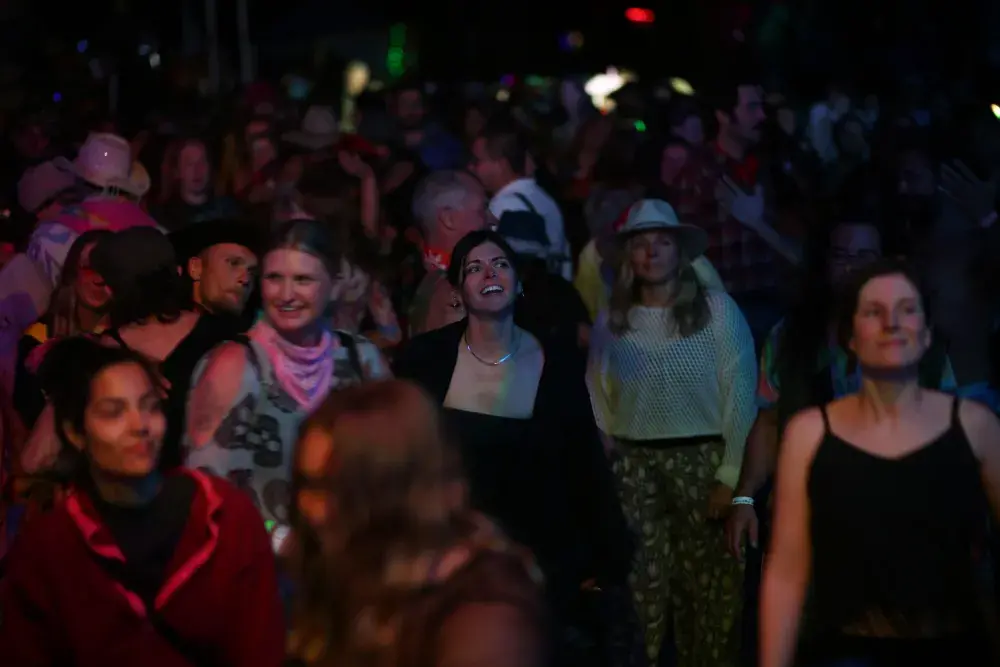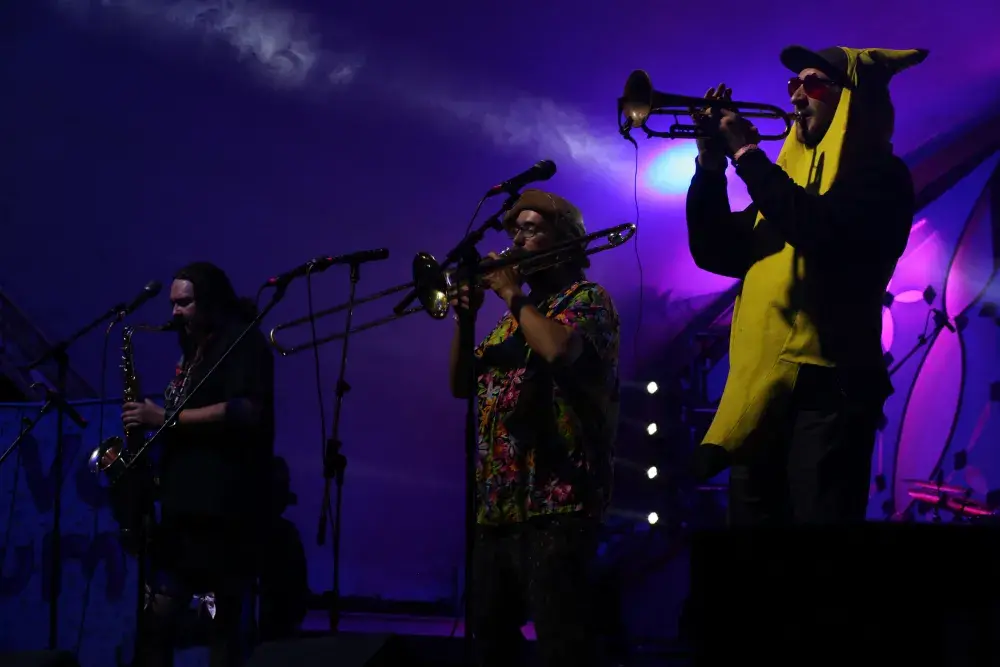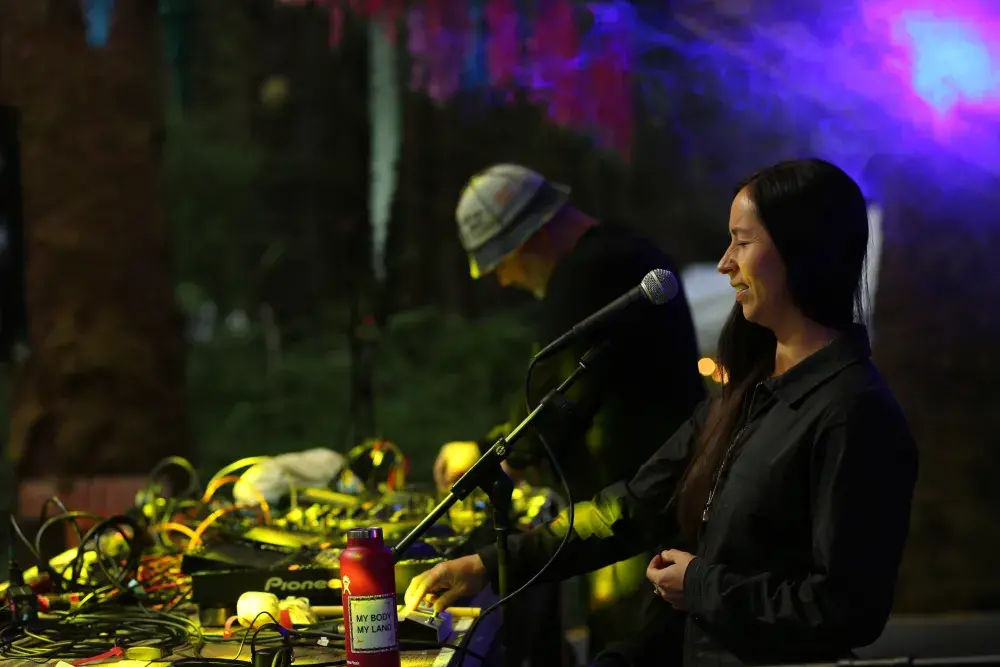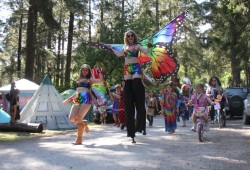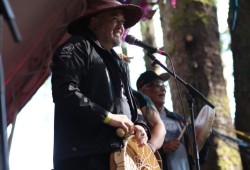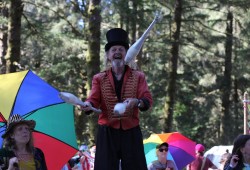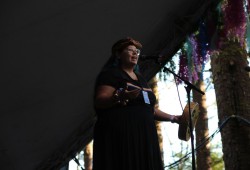A music festival took over Pachena Bay this weekend, echoing a rhythm through the tall trees as throngs of bohemian-clad visitors rocked and swayed on the forest floor below into the early hours.
In its third official year, the Pachena Bay Music Festival brought as much as 1,000 people to the Huu-ay-aht-owned campground, tightly packing their vehicles and tents into the site for three days of dancing and performances from a diversity of artists. Festivities began Friday, July 19 with a procession through the campground’s main corridor, allowing festival goers to display their costumes and vibrant attire, dancing to the horns and percussion of the Babyface Brass band.
This parade led to the main stage, where Huu-ay-aht members welcomed the crowd, reminding them of the stewardship that has cared for the region over thousands of years.
Olivia Peters, daughter of Ḥaw̓ił ƛiišin, explained the principles that continue to be sacred in Pachena Bay and the surrounding Huu-ay-aht territory.
“Hišuk ma c̕awak, everything is connected, the ocean, the air and the wildlife the great mother earth gave us,” she told the crowd. “ʔiisaak, it means respect, that we respect all things around us, each other as a community.”
“ʔuuʔałuk means to take care of each other, to look after yourself, look after all the land and the living things around us,” added Peters.
With just about all attendees committed to stay at the campground for the full three days, the festival organisers have taken this guidance to heart by stressing the need for all to leave no trace behind when they leave. The campsite’s garbage containers were closed shut with rocks and upturned, bearing messages saying, “Closed. Pack it in, pack it out.”
The festival partnership has also become a beneficial revenue generator for the Huu-ay-aht, whose group of businesses still relies on forestry for the majority of annual income.
While welcoming the crowd Councillor Edward Johnson Jr. noted how the music festival is a sign of different future for the First Nation.
“We’ve been at a socioeconomic development disadvantage from the get go,” he said. “From what I see here is lots of people that spend lots of money in our territory.”
This introduction concluded with the Paddle Song, during which visitors were called on to join Huu-ay-aht dancers as they paddled away from the main stage.
Energetic sets followed on the opening day, including performances from Vancouver’s Babyface Brass and Bu Vonblume of Cumberland. Between the exploding funk Michael Red and Tsimka of Tla-o-qui-aht brought a combination of ancient Nuu-chah-nulth singing and modern-day electronic sonic stylings, resulting in a hypnotic change in energy.
As a crowd danced to DJs on the beach, Huu-ay-aht’s Hinatinyis took the stage with a language lesson to remind visitors of the heritage behind the festival site.
“Our vowels actually give us the rhythm in our language,” explained the language teacher. “I’ve always imagined it like the ocean, how it comes and goes. When you start speaking longer sentences, you can start to hear those differences.”
“It’s really important to get that flow if you’re looking for fluency,” added Hinatinyis.
The Pachena Bay Music Festival continues until Sunday, July 21.

